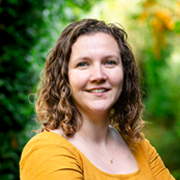Occurrence and characteristics of end-of-life decisions in stillbirths, neonates and infants in Flanders, Belgium
Abstract project
Background
In past decades there has been an enormous increase in medical and technical intervention possibilities for critically ill neonates and infants. However, a substantial number of surviving children are still confronted with serious morbidity of which a large group does not survive. The ethical dilemma in some of these situations between saving the infant’s life and not knowing what the burden of suffering will be needs thoughtful and professional deliberation of all parties involved in the decision-making process.
Aim
The general focus of this proposal is end-of-life decision making in stillbirths, neonates and infants on a population level (across centres and patients). The research has two research objectives:
- To map ELDs (taken before and after death) and practices in neonates and infants up to one year old
- Specific research aims are: to estimate the prevalence of various ELDs and practices
- to describe in detail the decision-making process, in terms of discussions with parents and consultation of the care team and other clinicians, including obstetricians
- to describe clinical as well as socio-demographic characteristics of patients and parents, and circumstances, including NICU policy or culture, influencing decisions and practices
- To map ELDs and practices in stillbirths, ie fetuses older than 22 weeks or over 500 grams
Specific research aims are:
- to describe in detail the decision-making process, in terms of discussions with parents and consultation of the care team and other clinicians, including neonatologists
- to describe important clinical as well as socio-demographic characteristics and circumstances influencing decisions and practices
Methods
We will perform a post mortem survey in Flanders over an 18-month period (2016-2017) based on death certificates. Every death or stillbirth from 26 weeks gestation onwards is registered via a death certificate in Belgium. Stillbirths after 22 weeks are also registered, but this is not obligatory. Death certificates in Flanders are sent to the central administration authority, i.e. the Flemish Agency for Care and Health. Certifying physicians of all deaths, based on both certificates of stillbirths, and certificates of newborns up to the age of one year, will be asked to fill in a questionnaire about each specific case on a continuing basis. Based on information from the Flemish Agency (2007-2008) approximately 845 deaths (500 stillbirths and 345 neonates and infants) are expected.
The questionnaire will contain following items and questions:
- the acts (or omission of acts) posed
- the intentions associated with the acts
- consultation and decision making with parents
- relevant unit/hospital policy
- clinical perinatal information (pregnancy complications, exposure to antenatal corticosteroid, umbilical artery pH, Apgar scores, resuscitation details,…)
- cultural context of care setting and actors in the decision making process
A rigorous procedure will be implemented to guarantee that no completed questionnaire can be linked to a particular patient or physician and that both patients and physicians remain anonymous. To guarantee anonymity, the different stages of the survey i.e. the mailing, receiving and processing of the questionnaires will be spatially separated and performed by different persons.
Project group
Researcher Laure Dombrecht
Promotor: Luc Deliens
Promotor: Joachim Cohen
Promotor: Kenneth Chambaere
Promotor: Kim Beernaert
Neonatologists: Filip Cools (UZ Brussel), Linde Goossens (UZ Gent), Gunnar Naulaers (UZ Leuven)
Researcher Ellen Roets
Promotor: Kristien Roelens
Promotor: Luc Deliens
Supervisor: Kim Beernaert
Senior Researcher: Kenneth Chambaere

